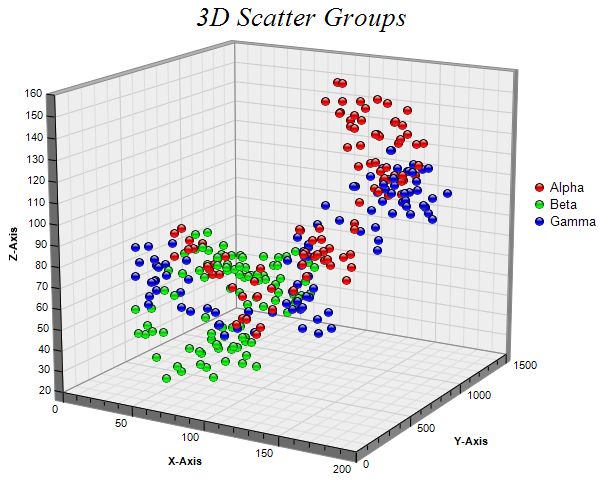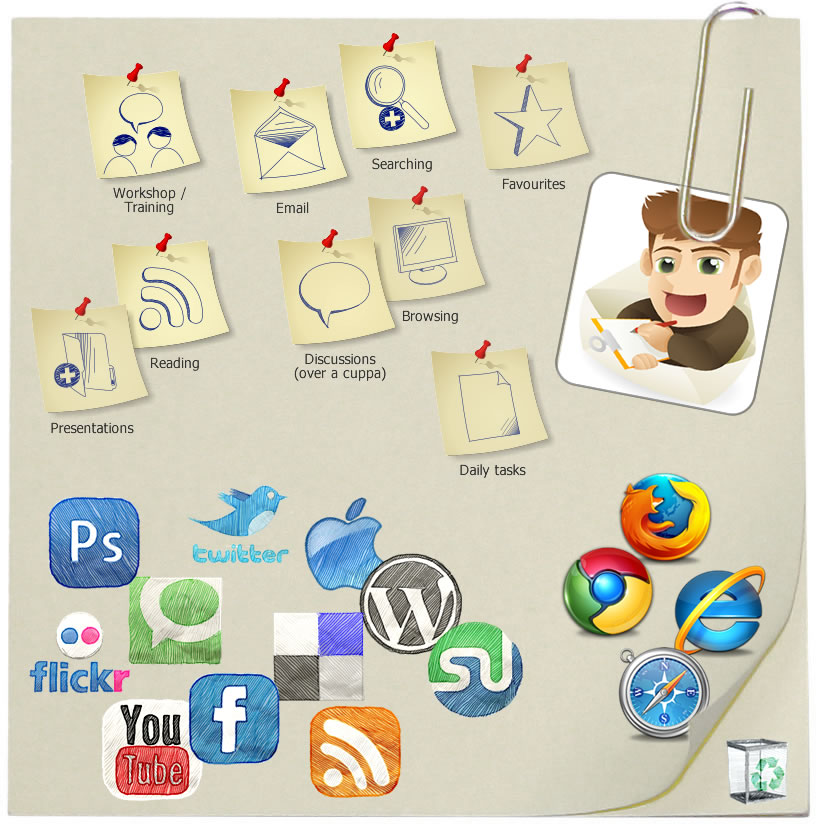 |
| These are the thought-leaders I chose from among the works Prinsloo offered in his presentation |
In Prinsloo’s
Beta (β), critical literacy (as Freire observed) involves reading both the world and the word in
a nonlinear fashion:
Reading is no longer a passive linear act in which we follow the author's lead from page to page,
from idea to idea, from topic to topic. The nature of authority is that it
dictates the direction of a text. In even the most basic hypertext document, the reader begins to have more control
than with the printed book. The reader
can make choices about which direction to go, paths to follow, and which to
ignore or put off until later. In some hypertexts the reader is encouraged to contribute, to add nodes or comments to the
existing text, or even to alter it. In this format, traditional definitions
of the author are no longer valid, but must give way to a postmodern sense that
text is created in both the writing and
the reading. Even more, the acts of reading
and writing become intellectually and physically intertwined. (Wahlstrom)
[Note: bolding is mine.]
And, to
return to Bourdieu’s playing field analogy discussed in my previous post, “The habitus is therefore a generative rather than a fixed
system: a basis from which endless improvisations can derive; a
'practical mastery' of skills, routines, aptitudes and assumptions which leave
the individual free to make (albeit limited) choices in the encounter
with new environments or fields. As in a sport or jazz, in Bourdieu's
favoured analogies, mastery of the rules or an instrument gives a 'feel for the
game' which enables individuals to improvise in response to the
circumstances of the moment.”[i] (Behler)
[Note: underlining is mine.][ii]
 |
| I couldn’t find any Synonyms for the concept of Nonlinearity |
Against this background, Prinsloo tries to
make sense of the 21st century: “Our understanding of the scope and
function of literacies is influenced by our understanding of the major
discourses of the current (and future) age.” (slide 11) He then gives us James
Martin’s view of the 21st century as potentially “The New Dark Age”
and asks: “How does such a view of the world shape my view of the scope,
definition and function of literacy?”
(slide 12)
The Liquidity of Discourse: The Relativity of Truth and its
Effect/Impact upon the Game
“What players
can do, and where they can go during the game, depends on their field position.
The actual physical condition of the field (whether it is wet, dry, well
grassed or full of potholes), also has an effect on what players can do and
this how the game is played” (Thompson, 2012, p. 66). (slide 18)
 |
| Pablo Picasso Girl Before a Mirror 1932 Oil on canvas |
 |
| Relativity, a lithograph print by the Dutch artist M. C. Escher, first printed in December 1953 |
Being of a philosophical bent, I asked Paul to what
extent one’s ‘location’ affected one’s perspective or perception – in other
words, whether the Thompson quote alluded to “the relativity of truth”.[iii]
In responding, Prinsloo admitted that there ARE some universal truths (like the
Laws of Physics, which we can’t argue since they hold true from any perspective
we might view them).
To further ‘muddy the field’ [and I know this is a
terrible pun], Prinsloo introduced us to Bauman’s concept of liquid
modernity.[iv] This was used by Area and
Pessoa as the foundation for “a model for developing new literacies of
citizenship in the digital society…. we contrast the 'solid' culture of the
19th and 20th centuries to the ‘liquid’ information culture of the 21st century
in which Web 2.0 plays a fundamental role and affects many aspects of our
culture.” (p.13)
Area and Pessoa review the main features of Web
2.0, which they see as having six major dimensions: as a universal library,
global market, as a giant hypertext jigsaw puzzle, a public space for social
communities, a territory for multimedia and audiovisual expression, and as a
space for multiple virtual interactive environments. [include web 2.0
dimensions pic here] I love the way the authors refer to the overabundance of
the universal library of the Web as “infoxication”![v]
Prinsloo attempts to align the
competencies these dimensions require with those proposed by Mackey and
Jacobson
and expands their Metaliteracy
Wheel to include the competencies required in a Metaliterate environment.
My takeaway from Prinsloo’s presentation: Knowledge is
no longer a ‘production line’, where each individual expands upon (or refines)
the original concept; knowledge in the 21st century is developing
into a canvas where ideas can be taken and transformed (by the cultural,
philosophical, intellectual, and creative perspectives of the player [be s/he reader,
listener, participant or ‘player’) into an array of thoughts, shared by the
individual with whomever cares to ‘taste’ them and re-use, revise, or re-invent
them into new artifacts that can, in turn, be sampled by others and re-used,
revised, or re-invented in a vast array of formats and etc.
So Lifelong Learning is a “Make (rather than
Choose) Your Own Adventure”! And I, for one, am enjoying the adventure immensely!
 |
| You never can tell where your metaliterate adventure might lead! |
REFERENCES and other
READINGS:
Bauman,
Zygmunt. "Education in Liquid Modernity." Review of Education, Pedagogy & Cultural Studies 27.4 (2005):
303-317. Education Source. Web. 9 Oct. 2013.
Behler, Constantin.
"Habitus." CB's Glossary for Students. N.p., 27 Oct. 2001.
Web. 11 Oct. 2013. <http://faculty.washington.edu/cbehler/glossary/habitus.html>
Freire, Paulo and Donaldo Macedo. 1987. Literacy:
Reading the Word and the World.
South Hadley, MA: Bergin & Garvey
"Linear." Roget's 21st Century Thesaurus,
Third Edition. Philip Lief Group 2009. Web. 15 Oct. 2013.
<http://thesaurus.com/browse/linear>.
Martin, James. The Meaning of The 21st Century: A
Vital Blueprint for Ensuring Our Future. London, UK: Transworld Publishers,
2007. Print
Prinsloo, Paul. "Metaliteracy in beta: A Personal View from the
South." SlideShare. 23 p., 7 Oct. 2013. Web. 11 Oct. 2013.
<http://www.slideshare.net/prinsp/p-prinsloo-7-october2013-final>.
Thompson, Pat. "Field." Pierre Bourdieu:
Key Concepts. Ed. Michael Grenfell. Durham, UK: Acumen Publishing, 2012.
65-82. Print.
Wahlstrom, Ralph. "Approaching The Paideia: an
Advanced Composition Model - The Triad; The Paideia." N.p., n.d. Web. 13
Oct. 2013.
<http://faculty.buffalostate.edu/wahlstrl/I-Search/frierereading.htm>.
[i] This
leads me to wonder: At what point does
our improvisation actually create a new game and/or playing field?
[ii]
Our chat discussion looked at ideas of:
·
empowerment (or embodiment or encouragement),
·
the ability of Web 2.0 to give a voice to those
who might NOT otherwise have a platform to express their ideas or opinions,
·
the lack of Internet access that still exists in
places around the globe that keeps some people from being able to participate
·
the neutrality of the platform/hardware (but
maybe not of the hosts) of the Web as a platform
[iii]
Nazik Roufaiel commented: “I am not sure about reading the world! From which
perspective, culture, economic, social, technology and infrastructure... Also how
do we interpret what we read, do we do it from OUR perspective, or the
writer’s perspective, or background?” I noted “It is philosophical and ties in
with content creation by individual users and the evaluation of same by the
'reader'/'viewer' as well as the manipulation by re-posting”; to which Joyce
McKnight responded “Key is to keep in mind that nothing is ever neutral.”
Tor Loney added “Understanding what we are NOT seeing is also a key part of
critical consciousness - both in the sense of knowing one's own personal
blocks and also actual existing blocks or absences.” And David Brown summarized
“I think understanding that everything is biased really brings ultimate
understanding.”
[iv] Bauman
discusses the impact of liquid modernity:..” society is being transformed by
the passage from the ‘solid’ to the ‘liquid’ phases of modernity, in which all
social forms melt faster than the new ones can be cast. They are not given
enough time to solidify and cannot serve as the frame of reference for human
actions and long-term life-strategies because their allegedly short life
expectation undermines efforts to develop a strategy that would require the
consistent fulfillment of a ‘life-project.’” (p.303)
[v]
Since I am an avowed “informavore”
(AKA ‘consumer of information’), do I, therefore, run the risk of becoming “infoxicated”?
Maybe I already AM too ‘infoxicated’ to recognize the signs!










